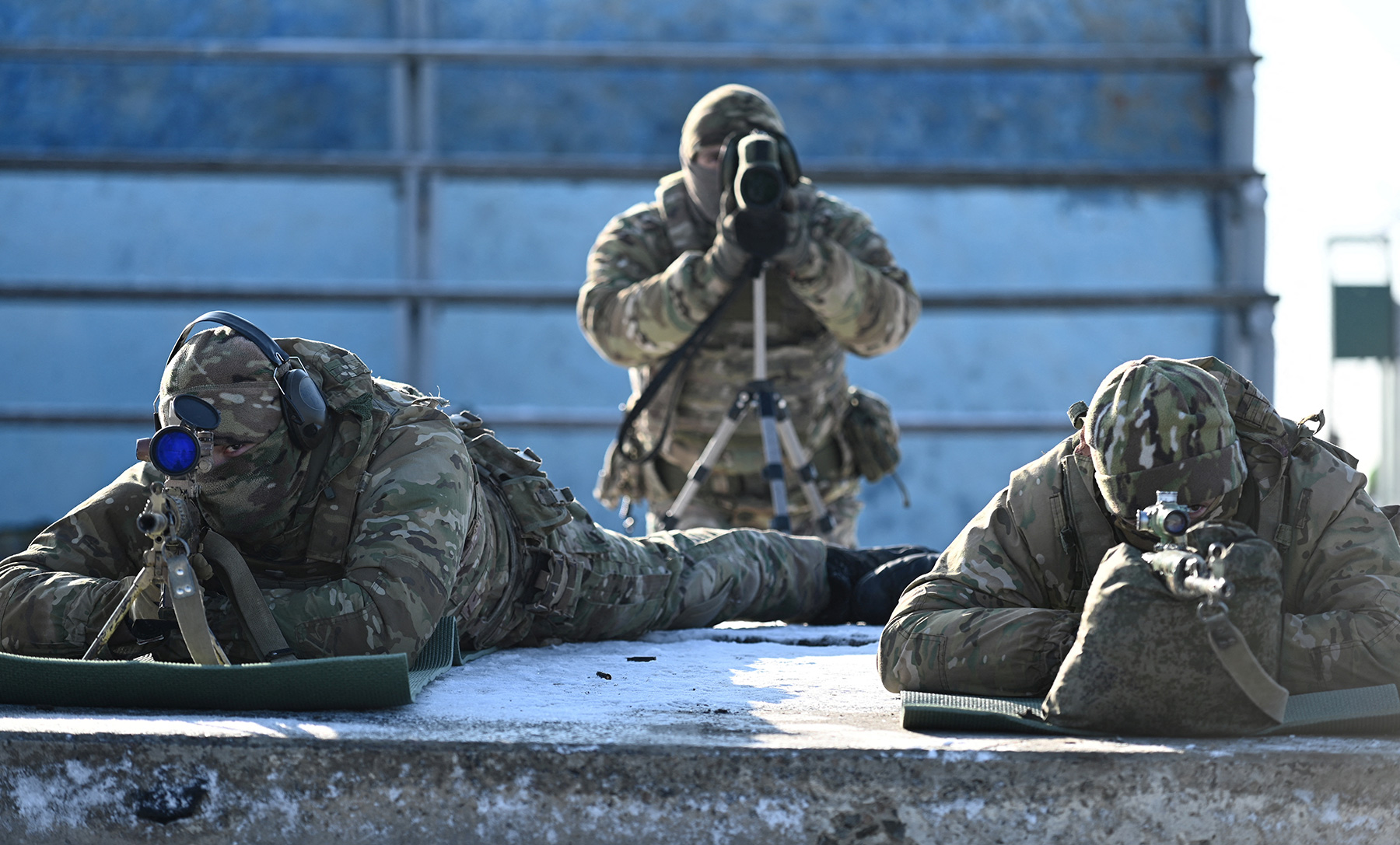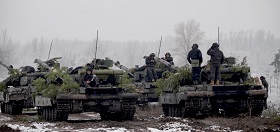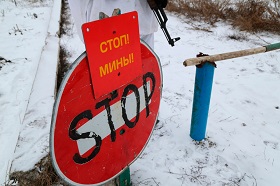The visit to Moscow by British Foreign Secretary Liz Truss can be considered a textbook example of a combination of diplomacy and sanctions. Scholars have long debated the effectiveness of sanctions in reinforcing a diplomatic position. The UK Foreign Secretary’s visit to Moscow will most likely be among the least successful ones. The introduction of amendments to the United Kingdom's sanctions legislation on Russia on the day of the visit was unlikely to achieve any results other than prompting cold restraint from Moscow.
From the point of view of the impact on Moscow, the sanctions amendment will give zero, and possibly even a negative result. There are several reasons.
First of all, Moscow simply cannot make any concessions in response to the threat of sanctions. Moreover, such concessions cannot be discussed after specific steps in the form of amendments, even despite their nature as a signal. Russia is a major power that will not yield to sanctions pressure for fundamental reasons.
Secondly, the damage dealt by British sanctions, even if they are applied to the maximum extent, can hardly be critical for Russia. Much more dangerous for Moscow are American sanctions.
Thirdly, the pressure on Moscow does not increase, but rather reduces the security of Ukraine. British policy fits into the well-known formula of "a combination of dialogue and pressure". However, such a formula does not bring the implementation of the Minsk agreements closer, but rather torpedoes them, encouraging Ukraine to sabotage them, and Russia to freeze the conflict.
Fourth, the threat of sanctions is unlikely to contribute to a constructive dialogue on the Euro-Atlantic security system.
Fifth and finally, Russia usually gives a “mirror response” to sanctions. The question is what this mirror response be like. Hypothetically, we can talk about symbolic visa responses, but it can also be about more serious steps, such as expanding the list of states that commit unfriendly actions against Russia.
The visit to Moscow by British Foreign Secretary Liz Truss can be considered a textbook example of a combination of diplomacy and sanctions. Scholars have long debated the effectiveness of sanctions in reinforcing a diplomatic position. The UK Foreign Secretary’s visit to Moscow will most likely be among the least successful ones. The introduction of amendments to the United Kingdom's sanctions legislation on Russia on the day of the visit was unlikely to achieve any results other than prompting cold restraint from Moscow.
The main purpose of Liz Truss's visit to Russia was to send a clear signal to the Russian Foreign Minister that Moscow should take steps to withdraw its troops from the border with Ukraine, respect its sovereignty and engage in meaningful negotiations.
On the eve of the visit, it was announced that London had inserted the amendments to the regulation on sanctions against Russia. In other words, the British side made it clear that it was ready to use sanctions as a “whip” if its position was not heard.
The meeting with Sergey Lavrov, Minister of Foreign Affairs of the Russian Federation, ended as expected, with a "
conversation between dumb and deaf."
Liz Truss's rhetoric was built around a hypothetical military conflict between Russia and Ukraine, while Sergey Lavrov focused on the West ignoring Russian proposals for the security system in Europe. Moscow does not welcome London’s active supply of arms to Ukraine, and the threat of possible sanctions was followed by a
warning about countermeasures. On the same day, British amendments to the regulation on sanctions against Russia were published.
The essence of the amendments is simple. The new regulation expands the range of individuals and entities against which the UK Foreign Secretary can impose blocking and visa sanctions. In the original version of the Regulations, which was adopted in 2019 as part of the formation of an independent sanctions policy after Brexit, such persons included those who are somehow connected with undermining the sovereignty and territorial integrity of Ukraine (
part 2, art. 6).
As amended on February 10, 2020, any person who benefits from or cooperates with Russian state structures can be subject to sanctions. Among these benefits is work in
strategically important sectors for Russia, such as construction, defence, electronics, energy, finance, etc. In other words, sanctions can be applied to a wide range of people, since the criteria for "support" and "benefit" are extremely wide. Strictly speaking, any Russian citizen associated with the public sector can be placed under sanctions. And this is the vast majority of Russian citizens.
In practice, the situation is different. Amendments to the Regulations can so far only create a legal mechanism for imposing sanctions, but do not mean its use here and now. The British are hanging the sanctions gun on the wall, but so far it has not been fired. Under the existing Regulation of 2019, 180 individuals and 48 legal entities have been blocked so far. In addition, well-known sectoral sanctions against the Russian financial, energy and military-industrial complex are being defined. That is, the actual number of blockings is small and there are no signs that the lists of persons under sanctions will radically expand if the status quo is maintained.
Another important detail is related to the provisions of the Sanctions and Anti-Money Laundering Act 2018 (SAMLA 2018). This Act determines the procedure for preparing sanctions regulations. Article 2 of SAMLA obliges the Minister who prepares the Regulations to set before Parliament the objectives of the measures to be taken. Article 4 of the 2019 Regulations connects them exclusively with the creation of conditions for Russia to stop engaging in destabilising actions against Ukraine. According to the letter of the Regulation, the blocking of persons who benefit from or support Russian state structures should still be carried out in connection with the main purpose of the Regulation, which is connected with Ukraine.
However, such norms can be interpreted extremely broadly and affect those who have nothing to do with the Russian policy towards Ukraine. This is evidenced by the experience of the US and the EU. US regulations on Ukraine make it possible to impose blocking and visa sanctions on individuals associated with the Russian government. In particular, we are talking about Article 1 of
Executive Order of the President of the United States No. 13661 of March 19, 2014 [ ] The case of
such sanctions on April 6, 2018 in relation to a group of prominent Russian businessmen suggests that they can be applied to individuals who have nothing to do with the Ukrainian crisis. Similar approaches can be found in EU law and enforcement. For example, EU Council Decision No. 512 of July 31, 2014 introduced sectoral sanctions against the Russian energy, financial and defence sectors “in connection with Russian actions
to destabilise the situation in Ukraine.” The Russian company Rosneft tried to challenge this decision in the EU Court of Justice. The company's argument was, among other things, that the oil industry had nothing to do with the situation in Ukraine. However, the appellate instance of the EU Court of Justice considered the decision legal, since the purpose of the sanctions is to increase the costs that Russia incurs because of its policy towards Ukraine. Rosneft is predominantly owned by the Russian Federation. This means that the sanctions against it correspond to
the stated goals.
The question arises: why did London need a new legal mechanism? There are several answers. First, the United Kingdom, following the example of Washington, draws red lines on the Ukrainian issue. If there is a war, tough sanctions will follow. The American authorities have also made
similar statements, and Congress has already drafted six bills on new
sanctions.
Secondly, the amendments to the 2019 Regulations insure the current government against criticism from the opposition and the media. The authorities show that they are reacting harshly to the problem and are acting preventively. Other steps, like the supply of arms to Ukraine, fit into this logic quite well.
However, from the point of view of the impact on Moscow, the sanctions amendment will give zero, and possibly even a negative result. There are several reasons. First of all, Moscow simply cannot make any concessions in response to the threat of sanctions. Moreover, such concessions cannot be discussed after specific steps in the form of amendments, even despite their nature as a signal. Russia is a major power that will not yield to sanctions pressure for fundamental reasons. From the point of view of international law, Russia’s military manoeuvres are absolutely legitimate. It is also important that Russia is unlikely to plan an attack on Ukraine. It's about demonstrating strength and reinforcing its position on Euro-Atlantic security issues.
Secondly, the damage dealt by British sanctions, even if they are applied to the maximum extent, can hardly be critical for Russia. Much more dangerous for Moscow are American sanctions. Obviously, in the event of war, Washington and London will introduce them simultaneously. Moscow can take the damage from sanctions into its calculations, but from the point of view of diplomacy, this means absolutely nothing. Russia will not enter into so-called “meaningful negotiations” as a result of being threatened with sanctions.
Thirdly, the pressure on Moscow does not increase, but rather reduces the security of Ukraine. British policy fits into the well-known formula of "a combination of dialogue and pressure". However, such a formula does not bring the implementation of the Minsk agreements closer, but rather torpedoes them, encouraging Ukraine to sabotage them, and Russia to freeze the conflict.
Fourth, the threat of sanctions is unlikely to contribute to a constructive dialogue on the Euro-Atlantic security system. There is a tendency to gradually “wind up” this issue, with the assumption that Russian troops cannot be in a state of constant mobilisation at the borders for a long time. But such a policy will not remove the fundamental problems and will only preserve the confrontation with all the ensuing risks, up to an unintentional escalation to a nuclear conflict.
Fifth and finally, Russia usually gives a “mirror response” to sanctions. The question is what this mirror response be like. Hypothetically, we can talk about symbolic visa responses, but it can also be about more serious steps, such as expanding the list of states that commit unfriendly actions against Russia. Such a development would further undermine the already crippled bilateral relationship with the United Kingdom.
The British have a list of arguments as to why Russian military manoeuvres near the borders with Ukraine are counterproductive. They have rational logic. But London could not convey them to Moscow, including with the help of sanctions. Unfortunately, the demonstration of force is once again becoming the norm in international relations. In this sense, Russia can be considered a worthy follower of the United States, but instead of several aircraft carrier groups, it’s power is concentrated in several armies. By demonstrating strength, Russia is forced to listen to concerns that had previously been ignored for years. The question is how sustainable the results will be. Moscow will surely face a sabotage of its proposals. Tactical success will not necessarily lead to strategic results. But it will be an example for other chapters of textbooks on international relations - on the connection between a show of force and diplomacy.
First published in the Valdai Discussion Club.







